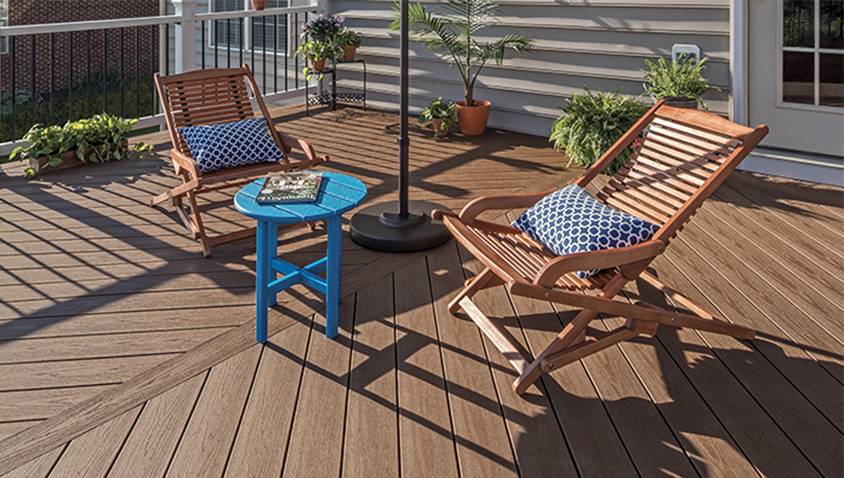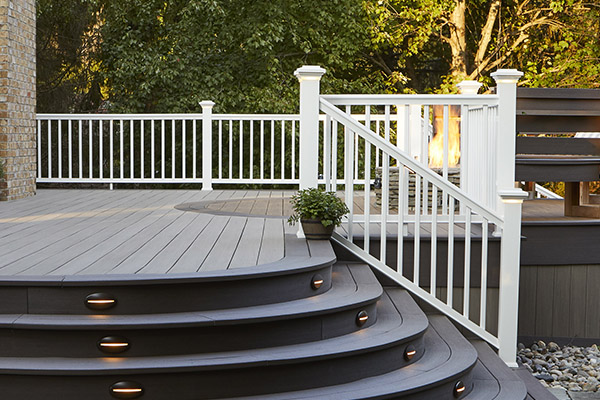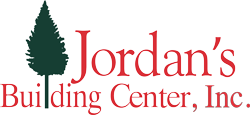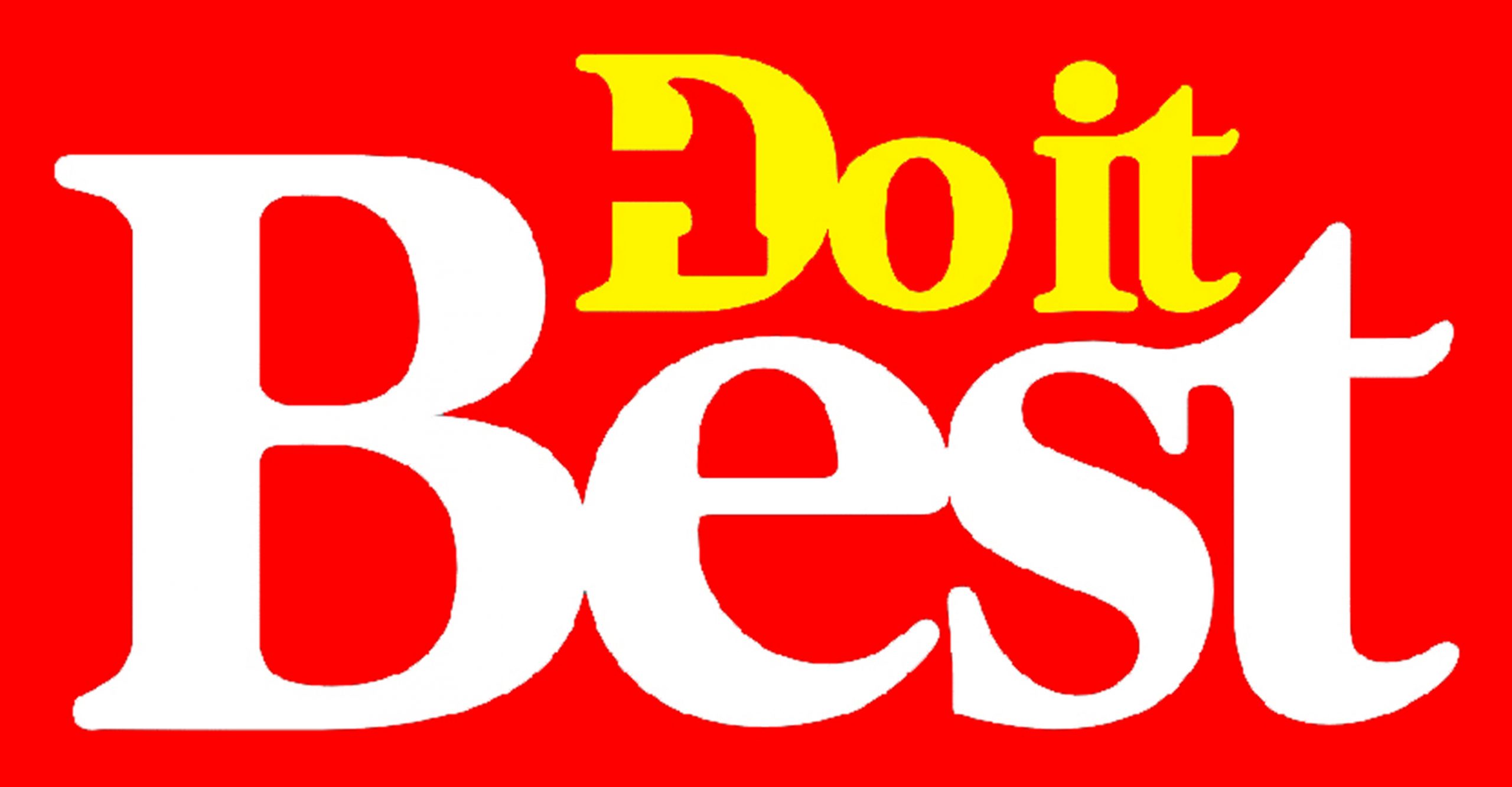If you’ve considered building a deck recently, you’re likely aware of the multitude of decking materials available. From all-natural wood to pressure-treated options to fully synthetic materials, the choice of decking material is a significant decision for any homeowner. Many have determined that composite decking is the optimal choice, thanks to its durability, customizability, cost-effectiveness, and various other advantages over traditional wood.
Even if you’ve settled on composite wood, the decision-making process isn’t over. You still need to choose a specific brand. Each composite decking brand claims to be the best, but how can you determine which one truly meets your needs? In this article, we’ll explore four leading composite decking brands to help you decide which is the best fit for your new deck: Trex Decking, TimberTech, Fiberon, and Fortress.
Trex Decking
Trex Decking is the pioneer in the composite decking industry, having introduced the first composite decks nearly 30 years ago. With its long-standing reputation, Trex remains a widely recognized and trusted brand today.

Trex offers various options to cater to different budgets and preferences, from the cost-effective Enhance® to the premium Lineage®. The differences between these options include higher quality textures, more detailed faux-woodgrain, and the amount of material used per board. For example, Enhance® boards have grooves carved out of the bottom, reducing costs but slightly compromising durability. Trex is also made from recycled plastic and comes with a 25-year warranty.
However, Trex boards do not have woodgrain on the underside, giving them a gray and plastic appearance. This may not be ideal for those utilizing the space beneath their deck. Still, if you’re looking for a balance between price and aesthetics, Trex is a solid choice.
Key Features
- Eco-Friendly: Trex Decking is made from 95% recycled materials, including reclaimed wood and plastic film.
- Low Maintenance: Unlike wood, Trex Decking doesn’t need staining or painting. It only requires occasional cleaning with soap and water.
- Durability: Trex boards resist fading, staining, scratching, and mold, ensuring your deck looks good for years.
- Variety: With several lines like Enhance®, Select®, and Transcend®, Trex offers options that fit various budgets and aesthetic preferences.
TimberTech Decking
TimberTech Decking is a relatively newer entrant in the composite decking market, positioning itself as a provider of more advanced features compared to its competitors.

TimberTech offers three tiers: the budget-friendly EDGE®, the mid-range PRO®, and the luxurious AZEK®. The EDGE® series is comparable to Trex’s Enhance in terms of price and aesthetics.
TimberTech is well-known for its premium AZEK® line. The AZEK® line is known for its fade and moisture resistance. It also has a heat-dissipating surface and slip resistance. Additionally, it comes with a lifetime warranty. TimberTech’s AZEK® is renowned as one of the most premium options available, though it comes with a higher price tag.
If you desire a high-tech, bold deck and are willing to invest more, TimberTech Decking could be your best bet. For those on a budget, other brands might be more suitable.
Key Features
- Superior Aesthetics: TimberTech’s boards are designed to mimic the natural look of wood more closely than many other brands.
- Longevity: With advanced fade and stain resistance, TimberTech decks maintain their beauty longer.
- Slip Resistance: Ideal for wet environments, TimberTech’s surfaces are designed to provide better traction.
- Heat Dissipation: TimberTech’s AZEK® line includes technology that keeps the boards cooler underfoot in hot weather.
Fiberon Decking

Fiberon Decking distinguishes itself by taking a unique approach to manufacturing its boards. Fiberon offers six types of composite decking, with the less expensive two made from PVC plastic and the pricier ones being a 50/50 blend of PVC and real wood. This blend offers increased resistance to wear and tear, ensuring your deck remains fade, rot, and splinter-free for years.
Fiberon’s higher-end boards feature a more authentic woodgrain appearance and are easier to clean. Comparable in price to Trex, Fiberon is an excellent choice for those seeking a real wood look on a budget. Additionally, Fiberon offers some of the best price-to-warranty ratios in the industry, making it a smart investment.
Key Features
- Authentic Wood Look: Fiberon’s higher-end products feature more realistic woodgrain textures.
- Variety of Options: With six different lines, Fiberon provides options for various budgets and style preferences.
- Durability: Fiberon decks are designed to resist fading, staining, and mold, ensuring longevity.
- Eco-Friendly: Many Fiberon products are made from recycled materials, supporting sustainable practices.
Fortress Decking
Fortress Decking may be less known, but it is no less ambitious. Fortress offers two types: the PVC Apex® and the bamboo-PVC blend Infinity® I-Series. While Apex® is similar to other budget options, the Infinity® I-Series claims to revolutionize composite decking.
The Infinity® I-Series boards are 40% lighter than competitors’ boards but up to twice as strong, allowing joists to be spaced up to 16″ apart, potentially enabling the reuse of existing joists. These boards have better heat dissipation and each deck has a unique woodgrain pattern. Fortress strikes a balance between luxury and affordability with the Infinity® I-Series, creating a new market for high-quality composite decking.
Key Features
- Lightweight and Strong: The Infinity® I-Series boards are significantly lighter yet stronger than many other composite options.
- Unique Appearance: Each board features a unique woodgrain pattern, making every deck distinctive.
- Heat Dissipation: Designed to keep the surface cooler in hot weather, providing more comfort underfoot.
- Innovative Materials: The bamboo-PVC blend offers enhanced durability and environmental benefits.
Conclusion on Composite Decking
Choosing the right composite decking brand depends on your specific needs and budget. Whether you prefer the pioneering reputation of Trex Decking, the high-tech features of TimberTech, the authentic wood feel of Fiberon, or the innovative approach of Fortress, there is a brand that will suit your project.
At Jordan’s Lumber, we are here to help you make the best choice for your deck. Visit our store to talk to our experts, see samples, and learn about our deck options for the future. Contact us for more information. With the right information and guidance, you’ll be able to select a composite decking brand that meets your aesthetic preferences, performance requirements, and budget considerations, ensuring your new deck is a source of pride and enjoyment for years to come.

